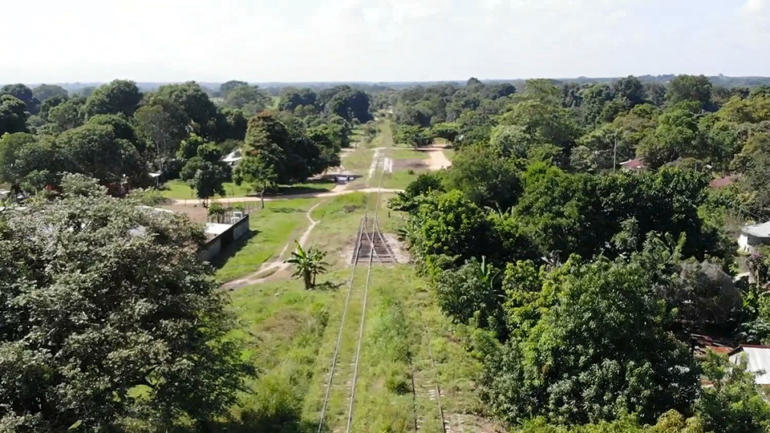Mexico is preparing to vote on its most ambitious railway project in decades. It would stretch nearly 1,500 kilometers and link towns and tourist attractions across six southern states. But opponents have plenty of concerns.
CGTN’s Alasdair Baverstock explains.
The Yucatan Peninsula in southeastern Mexico, was once home to the ancient Maya civilization.
Today, parts of this region are impoverished and often marginalized.
Yet Mexico’s president hails from here, and he’s got a plan to improve life for the area’s 4.5 million inhabitants.
“Now is the time to attend to the southeast. It’s your turn. Not only because the president is from the southeast, but because it’s a matter of justice. We have to balance the growth of Mexico,” President Andres Manuel Lopez Obrador said.
His proposal: A railway system called the Tren Maya – or Maya Train – on which he’s holding a regional referendum next month.
The Mayan Train will set off from the city of Palenque, the cradle of Mayan culture and runs more than 1,500 kilometers around the Yucatan Peninsula.
The rail project cost is estimated at up to $8 billion, and if approved on December 15th by the regional referendum, its engineers aim to have it up and running in just three years.
The train project is being fast-tracked partly because politically, Lopez Obrador is short of time.
Shortly after taking office, he held a national referendum to approve the Tren Maya, now seen by many as his future legacy.
And that puts Rogelio Jimenez, who is heading up the project, under pressure.
“Time is of the essence here. Politically, we have a window of time within which it will be fundamental to achieve this project,” Tren Maya Project Director Rogelio Jimenez said. “But the analysts we have working on it tell us it is possible; that we are going to have to work very hard to complete it, but we will do it.”
And in the region, the project has been controversial. Environmentalists cite threats to untouched rainforest – and the local wildlife that lives inside it, including endangered jaguars. Rural communities are upset that the project will displace families, like Lizbeth Guzman’s, who have lived beside the rails for decades.
“We know that the people who live beside the tracks are going to be displaced, but until now, no one from the government has come to talk to us about relocation, nothing. And we’re scared, because we’ve got nowhere else to go,” Lizbeth Guzman said.
Yet others see the long-term benefits. Just on the other side of the tracks lives Gustavo Pech, who is in favor of the project.
“This train isn’t only going to benefit tourism; it will be of benefit in general. Because the movement of people and goods around the region will flow more easily, and what does that mean Lower prices. So everyone is going to benefit,” Gustavo Pech said.
Turnout for last year’s nationwide referendum was dismally low, but among those who voted, 90% were in favor of Tren Maya.
Lopez Obrador has said he’ll give definitive power over the railway’s future to the indigenous communities themselves through their votes on the referendum, December 15th.
 CGTN America
CGTN America
